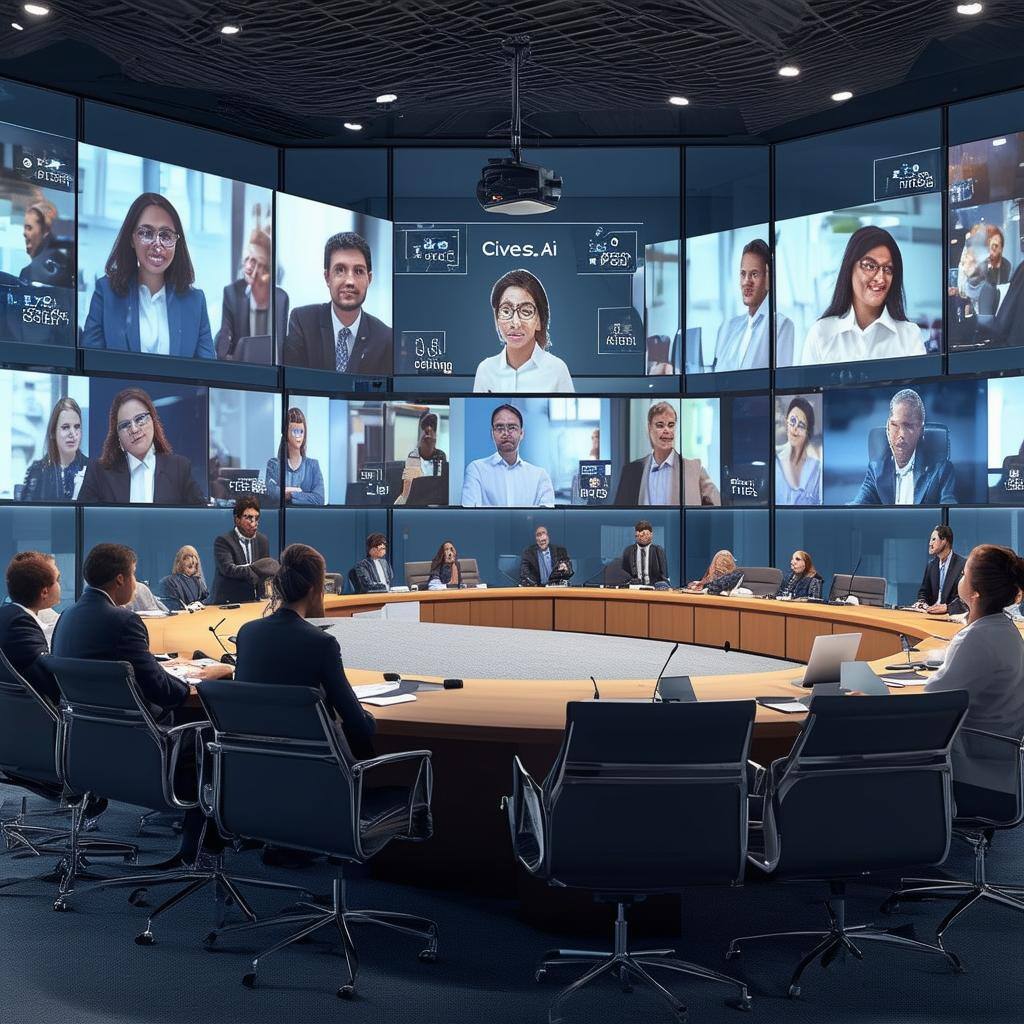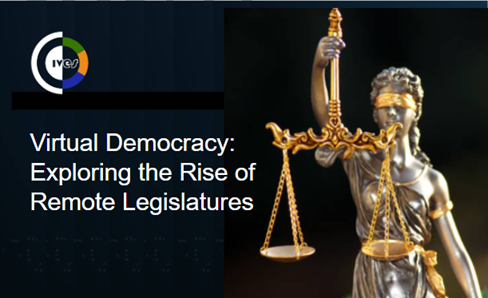Top 7 Benefits of Hybrid Legislative Meetings
The advent of hybrid legislative meetings has revolutionized the way governments operate, combining the best of both in-person and virtual...
2 min read
Brian McGlynn : Mar 5, 2024 3:51:00 PM

In the ever-evolving world of governance, technological advancements are continuously reshaping the way legislative bodies operate. Among these innovations, hybrid meetings—where participants can join both in-person and virtually—are emerging as a game-changer. This transformation is particularly significant in the context of legislative processes, where effective communication, collaboration, and decision-making are crucial. Legislate for Webex, a hybrid videoconferencing solution tailored for legislators, is at the forefront of this revolution. Let’s explore the broader trends in hybrid meetings and how they are transforming legislative processes and governance.
Hybrid meetings have gained traction for several reasons:
Increased Flexibility: Legislators no longer need to be physically present to participate in important discussions and votes. This flexibility is invaluable, particularly in times of crisis, such as the COVID-19 pandemic, which highlighted the need for remote participation.
Enhanced Inclusivity: Hybrid meetings allow for greater inclusivity, enabling participation from legislators who might be unable to attend in person due to geographic, health, or other constraints. This ensures that all voices are heard, leading to more representative and democratic decision-making.
Cost-Effectiveness: Reducing the need for travel and accommodation expenses, hybrid meetings offer a cost-effective alternative to traditional in-person gatherings. This can lead to significant savings for legislative bodies, freeing up resources for other critical needs.
Sustainability: With a growing focus on sustainability, reducing the carbon footprint associated with travel is a priority. Hybrid meetings contribute to greener governance by minimizing travel-related emissions.
The integration of hybrid meetings into legislative processes is transforming governance in several key ways:
Streamlined Decision-Making: With tools like Legislate for Webex, legislators can engage in real-time discussions, share documents, and vote electronically. This streamlines the decision-making process, making it more efficient and responsive to immediate needs.
Improved Collaboration: Hybrid meetings facilitate better collaboration among legislators, staff, and external experts. Features such as screen sharing, real-time document editing, and breakout rooms enable effective teamwork, regardless of physical location.
Enhanced Transparency: Many legislative bodies are now live-streaming their hybrid meetings, allowing the public to observe proceedings. This increased transparency fosters trust and accountability, as constituents can witness their representatives in action.
Accessibility of Information: Hybrid meeting platforms often include features for recording and archiving sessions. This ensures that all discussions and decisions are well-documented and easily accessible for future reference, enhancing institutional memory and accountability.
Legislate for Webex is specifically designed to meet the unique needs of legislative bodies. Here’s how it stands out:
Security and Confidentiality: Given the sensitive nature of legislative discussions, security is paramount. Legislate for Webex offers robust encryption and secure access controls to protect confidential information.
Customized Features: From electronic voting to agenda management, Legislate for Webex includes features tailored to legislative processes. This customization ensures that the platform aligns with the specific workflows of legislative bodies.
User-Friendly Interface: With legislators often having varying levels of technological proficiency, a user-friendly interface is crucial. Legislate for Webex provides an intuitive experience, minimizing the learning curve and encouraging adoption.
Reliable Support: Technical issues can disrupt important meetings. Legislate for Webex offers reliable customer support to ensure that any problems are promptly addressed, maintaining the smooth functioning of legislative activities.
As hybrid meetings become the norm, the future of legislation looks promising. The ability to seamlessly integrate in-person and virtual participation is not just a temporary solution but a long-term strategy for more resilient and adaptable governance. Legislate for Webex is leading this transformation, providing the tools necessary for legislative bodies to navigate the complexities of the modern world.
By embracing hybrid meetings, legislative bodies can ensure greater flexibility, inclusivity, and efficiency in their operations. As we move forward, the continued evolution of these technologies will undoubtedly bring even more opportunities for innovation in governance, paving the way for a more responsive and effective legislative process.

The advent of hybrid legislative meetings has revolutionized the way governments operate, combining the best of both in-person and virtual...
As the Chief Product Officer of CIVES.AI, I’m thrilled to share that our team is heading to Cisco Live in Amsterdam! This is an event that holds a...

In the wake of technological advancements and global connectivity, the landscape of democracy is undergoing a profound transformation. Traditional...